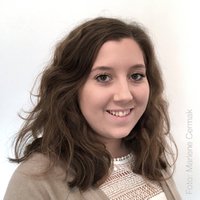Success Story: Future Skills in Dual Study
Workshop at the St. Pölten UAS

Under the motto “Future Skills im dualen Studium erfolgreich integrieren und sichtbar machen“ (successfully integrating future skills into dual study programmes and making them visible), representatives of universities of applied sciences, AQ Austria, and the Federation of Austrian Industries came together at the St. Pölten UAS on 24 September 2024. In an interactive workshop covering several hours under the leadership of Ulf-Daniel Ehlers and Jörn Allmang, the concept of Future Skills was presented to the participants in detail, and references to dual study programmes were established. Finally, the participants formed small groups to develop and present their own Future Skills curriculum.
Future Skills as a Key Element of Future-Oriented Higher Education
The highly motivated working atmosphere and the positive feedback after the event were proof of the topic’s strong relevance. Hannes Raffaseder, Executive Director of the St. Pölten UAS, also pointed this out during his welcome address: “Future Skills are a key element of future-oriented higher education. In dual study programmes, which allow students to actively tackle real-world problems together with our partner companies, the development and expansion of Future Skills are accomplished particularly well. Therefore, it is a positive sign that the number of dual study programmes in Austria continues to grow steadily.”
Teaching Materials Available Online
At the event, the presenters used teaching materials that are available free of charge for all as open educational resources. They can be found on the website of the working group NextEducation.
The workshop was held as a “Grassroots Activity” with support from the project 3-IN-AT-PLUS 2022-2024, an Erasmus+ project of the Federal Ministry of Education (BMBWF) to support the implementation of the European Higher Education Area (EHEA). The OeAD coordinates and implements the project.
Further Information
 Co-funded by the European Union. However, the views and opinions expressed here are the author’s/authors’ alone and do not necessarily correspond to those of the European Union or the European Education and Culture Executive Agency (EACEA). Neither the European Union nor the EACEA can be held responsible for the contents.
Co-funded by the European Union. However, the views and opinions expressed here are the author’s/authors’ alone and do not necessarily correspond to those of the European Union or the European Education and Culture Executive Agency (EACEA). Neither the European Union nor the EACEA can be held responsible for the contents.

Marlene Cermak , BA MA
Evaluation and Knowledge TransferService and Competence Centre for Higher Education Development and Quality Management